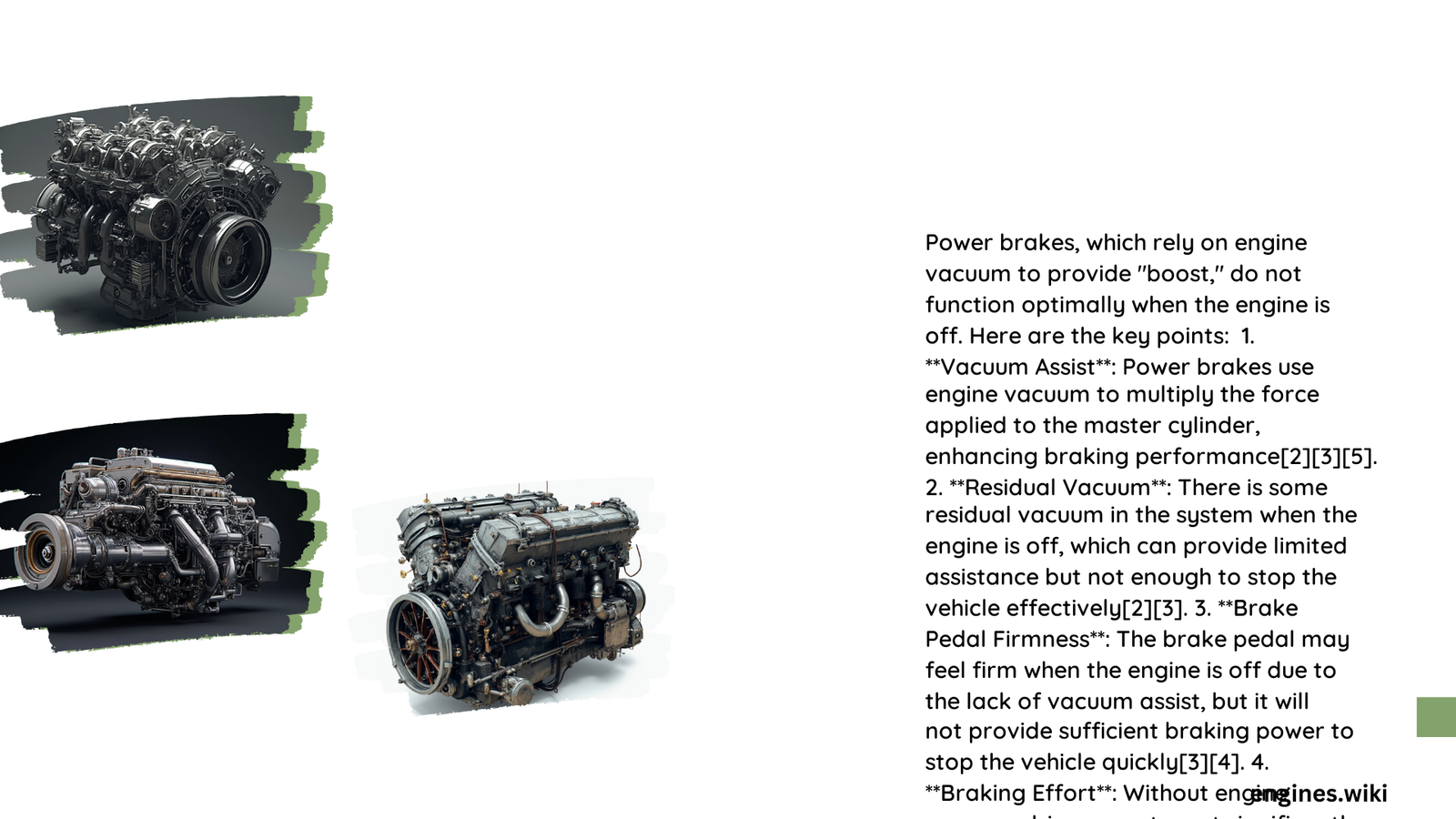Power brakes rely on engine-generated vacuum to provide enhanced stopping power. When the engine is off, the brake system loses its primary assist mechanism, resulting in a significantly harder brake pedal and reduced braking efficiency. Drivers must understand these limitations to ensure safe vehicle operation during engine-off scenarios.
What Happens to Power Brakes When Engine Stops?
Power brakes fundamentally depend on vacuum pressure generated by a running engine. When the engine shuts down, several critical changes occur in brake system performance:
How Does Vacuum Assist Impact Brake Operation?
- Vacuum Pressure Dependency
- Typical brake boosters require 15-20 inches of mercury (inHg) for optimal performance
- Engine generates continuous vacuum during operation
- Vacuum hose connects intake manifold to brake booster
What Challenges Emerge During Engine-Off Scenarios?
- Increased Pedal Resistance
- Brake pedal becomes substantially harder to press
- Requires significantly more physical force from driver
-
Stopping distance increases dramatically
-
Limited Brake Applications
- Reserved vacuum allows 3-5 brake applications
- Subsequent stops demand progressively more effort
- Vacuum depletion occurs rapidly
Can Alternative Brake Assist Systems Help?
| Brake Booster Type | Engine-Off Performance | Typical Application |
|---|---|---|
| Vacuum Diaphragm | Minimal Assist | Most Passenger Vehicles |
| Hydro-Boost | Partial Assist | Heavy-Duty Trucks |
| Electric Brake Assist | Consistent Performance | Modern Electric/Hybrid Vehicles |
What Safety Precautions Should Drivers Take?
- Anticipate Harder Braking
- Apply more physical pressure to brake pedal
- Expect longer stopping distances
-
Maintain greater following distance
-
Emergency Techniques
- Use heel-toe braking technique
- Apply consistent, firm pressure
- Avoid panic or sudden brake applications
How Do Different Vehicle Types Respond?
Passenger Vehicles
- Standard vacuum-assist systems
- Significant performance reduction when engine is off
- Typically 3-4 effective brake applications
Commercial Trucks
- Often utilize hydro-boost systems
- More resilient brake assist capabilities
- Enhanced reserve pressure mechanisms
Technical Considerations for Brake System Health
- Regular Maintenance Checks
- Inspect vacuum lines
- Test brake booster functionality
-
Monitor system pressure
-
Potential Replacement Indicators
- Consistently hard brake pedal
- Reduced braking performance
- Unusual brake system noises
Conclusion

Understanding power brake limitations during engine-off conditions is crucial for driver safety. While brake systems can function without full vacuum assist, performance significantly degrades. Drivers should remain alert, apply additional force, and prioritize maintaining vehicle brake system health.
